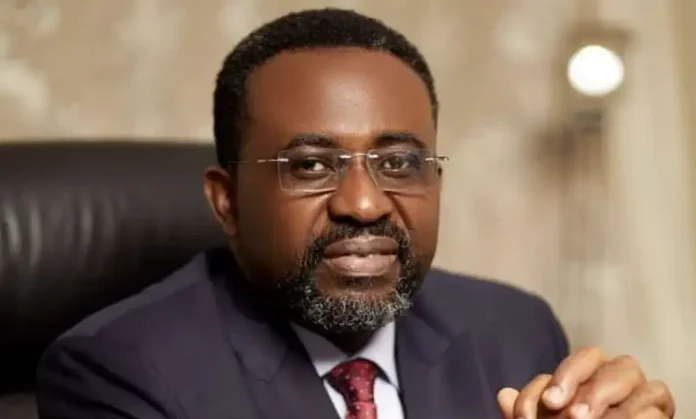Bank of Ghana Governor Johnson Asiama has declared war on dollarization, pledging to restore the cedi as Ghana’s undisputed currency of choice before his tenure expires.
Speaking with emotion at the ongoing World Bank/IMF Annual Meetings in the United States, Asiama framed his mission in deeply personal terms, drawing on three decades of central banking experience to justify what he calls his legacy project. The timing of his announcement, just weeks before Ghana marks “Cedi at 60” celebrations on October 28, signals that this isn’t merely rhetoric but a coordinated campaign.
“It’s one of the things I would want to be remembered for, that I came, I solved that problem,” Asiama said, his voice carrying the weight of conviction. “I made the local currency the currency of choice.”
What makes this declaration noteworthy isn’t the goal itself but the governor’s candid admission that previous efforts have failed. Dollarization has plagued Ghana’s economy for decades, persisting despite regulatory attempts to enforce the cedi’s status as sole legal tender. In practice, landlords demand rent in dollars, car dealerships price vehicles in greenbacks, and businesses routinely quote high value transactions in foreign currency.
The disconnect between law and reality exposes a fundamental truth Asiama is betting he can reverse: Ghanaians don’t trust their own money enough to use it when stakes are high. Years of inflation and depreciation have taught citizens that the cedi loses value faster than they can spend it, making the dollar a safer store of wealth despite legal prohibitions.
Asiama believes fixing dollarization sits at the core of Ghana’s economic troubles. When citizens conduct transactions in foreign currency, it undermines the effectiveness of monetary policy tools the central bank deploys to manage inflation and stabilize the economy. It’s difficult to control money supply and interest rates when a significant portion of economic activity happens outside the cedi ecosystem.
The upcoming Cedi at 60 celebration represents more than symbolic milestone marking. Bank of Ghana officials are positioning it as the launch pad for renewed efforts to build currency confidence. The question is whether anniversaries and awareness campaigns can overcome the rational economic calculations that drive Ghanaians toward dollars in the first place.
Not everyone shares Asiama’s optimism about fighting dollarization. Professor Pat Obi, a finance scholar at Purdue University Northwest in the United States, argues that Ghana should embrace rather than resist the trend. According to Obi, dollarization has become so deeply embedded in the economy that authorities might achieve better results by officially adopting the U.S. dollar as a medium of exchange.
That perspective represents a fundamentally different diagnosis of Ghana’s economic challenges. Where Asiama sees dollarization as a problem requiring solutions that restore cedi confidence, Obi views it as an irreversible reality that Ghana should formalize rather than fight. The debate mirrors broader discussions across developing economies about whether currency sovereignty is worth preserving when local money consistently fails to hold value.
Asiama’s 30 years in central banking means he’s witnessed multiple attempts to tackle this issue, none successful enough to break the pattern. His emotional framing suggests he views this final push as a personal mission that will define his professional legacy. But emotion and determination, however genuine, don’t automatically translate into policy effectiveness.
The governor’s challenge is proving that this time will be different. Previous campaigns to promote cedi usage have floundered because they addressed symptoms rather than causes. Ghanaians don’t avoid the cedi because they lack patriotism or need better marketing. They avoid it because economic fundamentals make holding dollars a rational choice for protecting wealth.
If Asiama succeeds, it will require more than celebrations and exhortations about national pride. It will demand consistent macroeconomic management that delivers low inflation, exchange rate stability, and restored confidence that today’s cedi will still hold reasonable value tomorrow. Those are the conditions under which citizens voluntarily choose local currency, not because laws require it but because economic logic supports it.
For now, the governor has made his intentions clear. Whether he achieves the legacy he’s chasing depends on factors beyond determination alone. The cedi’s credibility must be earned through years of disciplined policy execution, not wished into existence through anniversary events.
Ghana will soon find out if Asiama’s mission amounts to breakthrough or just another chapter in the country’s long struggle to make its own currency worthy of citizens’ trust.
Source: newsghana.com.gh











